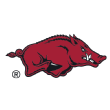Reseeding the Sweet 16: Who overperformed, who underperformed?
- Covers college basketball
- Joined ESPN.com in 2011
- Graduate of Minnesota State University, Mankato
So … how’s your bracket? Yeah, we understand.
The first two rounds have given us historic moments and thrilling wins. Remember when Furman beat Virginia on a 3-pointer in the final seconds on Thursday? We don’t either. Because since then, Fairleigh Dickinson and Princeton manufactured more consequential upsets that quickly stole Furman’s 15 minutes of fame.
Michigan State was competitive but clearly flawed through Big Ten play. Still, it’s Tom Izzo, so the Spartans are in the Sweet 16 once again. Kansas and Purdue, both 1-seeds, are back home. Huh?
Our attempt to reseed the Sweet 16 is closer to a ranking system based on our belief of where these teams stand now, and how far we believe they can go. The full body of work matters, but the current state of a program is impactful, too. Just ask Arkansas, which weathered an 8-11 stretch before this tournament run.
Here is our attempt to reseed the Sweet 16:
1. Alabama Crimson Tide
Original Seed: No. 1. Reseed: 1
Nate Oats’ squad appears to possess a gear that perhaps even Houston — the only other remaining No. 1 seed in the NCAA tournament — might not be able to reach. In the 21-point win over Texas A&M-Corpus Christi on Thursday, Brandon Miller (groin injury) went scoreless and played just 19 minutes, but the Crimson Tide still registered 132 points per 100 possessions. Miller returned for Alabama’s 22-point win over Maryland in the second round with 19 points, seven rebounds.
The Crimson Tide — third in adjusted defensive efficiency on KenPom — proved they can also play excellent defense, too. The balance attached to this Alabama team is unrivaled in college basketball right now. Miller is a top-five NBA prospect on every reputable mock draft board and leads a team capable of offensive barrages and defensive shutdowns. It’s not unimaginable that Alabama might walk through its next two opponents on its way to the Final Four.
Up next: vs. San Diego State (Friday, 6:30 p.m. ET, TBS)
2. Houston Cougars
Original Seed: No. 1. Reseed: 1
Houston might not be 100 percent but Jamal Shead (knee) and Marcus Sasser (groin) both contributed in the second-round win over Auburn on Saturday — reigniting the Cougars’ hopes of becoming the first host school in Final Four history to actually play in the Final Four. Down 10 points at halftime, Houston showed how dangerous it can be when it is (mostly) healthy as it outscored the Tigers 50-23 in the second half. Sasser fought through foul trouble but still managed to score 22 points in 31 minutes. Shead (10 points) had his struggles but played 34 minutes. Tramon Mark (26 points) joined Sasser as the first duo in Houston history to score 20 points or more in the NCAA tournament since 1984.
It was a dominant, come-from-behind effort by a Cougars team that deserves all the Final Four hype that seemed to subside when Sasser re-aggravated his groin injury in Thursday’s win over Northern Kentucky in the first round. Houston is back on its perch.
Up next: vs. Miami (Friday, 7:15 p.m. ET, CBS)
3. UCLA Bruins
Original Seed: No. 2. Reseed: 1
Toward the end of Saturday’s win over Northwestern, Mick Cronin hovered over David Singleton (9.1 PPG, 43% from the 3-point line) after the sharpshooter and starter suffered an ankle injury. At this point, the injury bug appears to be UCLA’s greatest threat. Jaylen Clark, the Pac-12 Defensive Player of the Year, has been out since the conference tournament; Adem Bona, a five-star recruit, returned after two games out due to a shoulder injury to play against Northwestern.
Yet, Cronin’s team continues to overcome those challenges. How? Jaime Jaquez Jr. (21.5 PPG, 17-for-28 inside the arc, 40% from 3 in the NCAA tournament), the projected All-American, has been one of the top players in the postseason thus far. Five-star recruit Amari Bailey (15.5 PPG in two NCAA tournament games) has emerged as a more consistent scoring threat. And Tyger Campbell has just two turnovers in UCLA’s past four games. That’s how.
Up next: vs. TCU/Gonzaga (Thursday, 9:45 p.m. ET, CBS)
4. Texas Longhorns
Original Seed: No. 2. Reseed: 1
When Chris Beard was fired in January, Rodney Terry was widely viewed as a temporary solution for a Texas opening that has been attached to some of the biggest names in college basketball. Terry was just the guy until Texas found the next guy, right?
Terry had other plans. The Longhorns’ run to the Sweet 16 — their first since 2008 — should give him the inside track on securing that job permanently. This Texas team was viewed as a potential Final Four team prior to the season. Terry has helped this program on the path to reach that ceiling, and he deserves credit — and a contract — for that. Saturday’s victory over Penn State 71-66 on Saturday showcased the depth of this team. Timmy Allen’s defense on Jalen Pickett (5-for-13, 11 points) limited the All-American’s impact. Dylan Disu (28 points, 10 rebounds) carried his team on offense. Over the past month, Texas is 8-2 (including two wins over Kansas). If the Longhorns play like this going forward, they’ll have a chance to get to the Final Four for the first time in 20 years.
Up next: vs. Xavier (Friday, 9:45 p.m. ET, CBS)
5. UConn Huskies
Original Seed: No. 4. Reseed: 2
Through UConn’s first two games, there have been multiple moments where the camera has focused on Adama Sanogo waiting on the bench to run into the game and wreak havoc. Sanogo has been the most dominant force in the first weekend of the NCAA tournament. His numbers read like they’re from an Xbox game: 28 points (13-for-17), 13 rebounds and a block against Iona; 24 points (11-for-16), 8 rebounds and a block against Saint Mary’s. Connecticut won its first two NCAA tournament games by a margin of 39 points combined as a result of those performances. The Huskies are also 22-for-47 from the 3-point line. They’re grabbing a lot of offensive rebounds and both Iona and Saint Mary’s registered just 95 points per 100 possessions against their defensive pressure. Dan Hurley’s squad is playing some championship-level basketball right now.
Up next: vs. Arkansas (Thursday, 7:15 p.m. ET, CBS)
6. Tennessee Volunteers
Original Seed: No. 4. Reseed: 2
Long before strength and conditioning programs in college basketball became trendy, Rick Barnes had committed to developing an unmatched level of physicality within his programs. Ranked first in adjusted defensive efficiency on KenPom, Tennessee’s brawn contributed to its 65-52 second-round win over Duke — which had won 10 games in a row — and the program’s seventh trip to the Sweet 16 since 2000. Duke, a top-10 offensive rebounding team in America, secured just 21% of its second-chance opportunities against the Vols. And 6-foot-9, 236-pound Olivier Nkamhoua (27 points) bullied the Blue Devils, especially in the second half.
Turnovers had been an issue following Zakai Ziegler ‘s season-ending injury, but the Vols committed just nine against Duke. If this plodding, imposing, defensive juggernaut continues to play a prudent brand of basketball, Barnes could reach the Elite Eight for the first time since the 2007-08 season when he was at Texas.
Up next: vs. FAU (Thursday, 9 p.m. ET, TBS)
7. Gonzaga Bulldogs
Original Seed: No. 3. Reseed: 2
During their 11-game winning streak, the Bulldogs have won each game by an average of 18.4 PPG. While they don’t have a Jalen Suggs, Chet Holmgren or another projected lottery pick, their offensive ceiling allows them to separate themselves, even in tight games. Down the stretch against a relentless TCU squad on Sunday, Gonzaga turned to Drew Timme and also played aggressively around the rim to get free throw attempts.
It worked, and now Gonzaga is back in the Sweet 16 for the eighth year in a row. This is an elite team that’s getting better at the right time. It’s also the worst Gonzaga defense in 16 years. That could be a problem for a team with plenty of offensive advantages and a difference-maker determined to get them to the third weekend.
Up next: vs. UCLA (Thursday, 9:45 p.m. ET, CBS)
8. Kansas State Wildcats
Original Seed: No. 3. Reseed: 2
Jerome Tang believed Kansas State had an opportunity to begin an immediate turnaround last summer, when he left Baylor — where he was associate head coach and won a national title with the Bears in 2021. He was right. With Keyontae Johnson arriving from Florida and Markquis Nowell returning for another run, he had a pair of anchors who charged this team’s first run to the Sweet 16 since 2018.
Nowell in particular has been a mystery for opposing backcourts thus far. His playmaking ability and success with pick-and-roll situations make Kansas State a challenge for any defense. He has also shot 43% from 3 in the NCAA tournament. Plus, the Wildcats disassembled the offensive rhythms of both Montana State and Kentucky, a pair of teams that committed turnovers on 23% of their possessions against them. Tang’s squad has a high level of confidence entering the Sweet 16. It’s easy to see why.
Up next: vs. Michigan State (Thursday, 6:30 p.m. ET, TBS)
9. Xavier Musketeers
Original Seed: No. 3. Reseed: 3
Timing matters. A team that has to deal with a major injury just prior to the start of the NCAA tournament — see: Kansas’ loss to Arkansas in the second round with Bill Self sidelined for multiple games following heart surgery — might have trouble adjusting in time to find itself again. But Xavier lost Zach Freemantle (15.2 PPG, 8.1 RPG) to a season-ending foot injury Feb. 1. While it was a devastating loss for the program, it happened early enough for Sean Miller to reconfigure his lineups.
Jerome Hunter, Freemantle’s replacement in the starting lineup, is averaging 19 PPG (14-for-21 inside the arc) through two NCAA tournament games. And a Xavier squad that has lost just one game since Feb. 21 (7-1) held Kennesaw State and Pitt to an average of 94 points per 100 possessions. But the Musketeers will have to outplay better competition to reach the Final Four.
Up next: vs. Texas (Friday, 9:45 p.m. ET, CBS)
10. Creighton Bluejays
Original Seed: No. 6. Reseed: 3
Picked to win the Big East prior to a turbulent start this season, Creighton is showcasing the versatility that has made the Bluejays a real national championship contender. Ryan Nembhard, brother of Indiana Pacers standout Andrew Nembhard, had 30 points against Baylor as his team made 46% of its 3-point attempts Sunday. On Friday, when the Bluejays finished 3-for-20 from beyond the arc in their win over NC State, Ryan Kalkbrenner, a 7-foot-1 star who has made 73% of his shots inside the arc, finished with 31 points.
The Bluejays have a diversified offense that relies on size, balance and the hot hand. After Creighton stumbled early in the season, it was easy to doubt its postseason aspirations. But the Bluejays are 14-4 in their past 18 games after reaching the Sweet 16 for just the second time since 1974.
Up next: vs. Princeton (Friday, 9 p.m. ET, TBS)
11. Arkansas Razorbacks
Original Seed: No. 8. Reseed: 3
From Dec. 28 to March 4, Arkansas went 8-11 and made just 32% of its 3-point attempts. Yes, the Razorbacks have three NBA prospects (Nick Smith Jr., Anthony Black and Ricky Council IV), but Eric Musselman struggled to turn that talent into wins at the time. Lost in the conversation, however, was Arkansas’ effort to become a tougher defensive team in the paint. Its opponents averaged just 46% of their shots inside the arc (No. 22 in the country) during those rocky months.
Why does that matter? In Arkansas’ NCAA tournament wins over Illinois and Kansas — leading to Musselman’s third consecutive Sweet 16 appearance at Arkansas — the Illini and the Jayhawks registered a 49% clip combined inside the arc. Illinois (55%) and Kansas (53%) fell below their respective norms against an Arkansas team that’s more serious about defense these days. That, plus the emergence of players like Davonte Davis (21 points in the second half against Kansas), means the Razorbacks now look like a Final Four sleeper full of energy and courage, and with an upset of a No. 1 seed on their résumé.
Up next: vs. UConn (Thursday, 7:15 p.m. ET, CBS)
12. San Diego State Aztecs
Original Seed: No. 5. Reseed: 3
In their 75-52 win over Furman on Saturday, SDSU head coach Brian Dutcher neutralized the team (the Paladins were 16-for-50 from the field) that upset Virginia. That’s been the norm for one of America’s best defensive teams. The Aztecs’ potential to advance to the Elite Eight and potentially beyond centers on their defensive prowess. During its current six-game winning streak, SDSU’s opponents have averaged just 85 points per 100 possessions. For context, Tennessee — ranked first in adjusted defensive efficiency on KenPom — held its SEC opponents to 92.6 points per 100 possessions this season.
SDSU, which shoots 60.5% from inside the arc, also got rolling on offense against Furman. If Matt Bradley (one of four double-digit scorers Saturday) & Co. continue to play defense at this level and find ways to get buckets, they’ll be a difficult opponent to solve.
Worth noting? A Charleston-Furman path to the Sweet 16 was the easiest in the field.
Up next: vs. Alabama (Friday, 6:30 p.m. ET, TBS)
13. Miami Hurricanes
Original Seed: No. 5. Reseed: 4
Miami received a significant boost with the availability of Norchad Omier, who was questionable for the NCAA tournament after suffering an ankle injury in the ACC tournament. But he was cleared and now has 19 points and 31 rebounds through two NCAA tournament games.
Isaiah Wong (27 points against the Hoosiers) continues to fuel a Miami team that reached the Sweet 16 for the fifth time in school history with its win over Indiana on Sunday. The last ACC team in the field pushed the pace against Drake and IU and will attempt to do the same in the Sweet 16. Miami’s defense has been a concern all season (108th in adjusted defensive efficiency on KenPom) but it has also played some of the best defense of this season over the past couple days. If this becomes the norm, a squad that boasts one of America’s most potent offensive attacks (37% from the 3-point line, 54% inside the arc) will have a chance to reach the Elite Eight for the second consecutive season.
Up next: vs. Houston (Friday, 7:15 p.m. ET, CBS)
14. Michigan State Spartans
Original Seed: No. 7. Reseed: 4
One of the themes of any NCAA tournament that involves Tom Izzo is that you probably shouldn’t bet against Tom Izzo. Most did in his team’s matchup against Marquette, the Big East regular season and tournament champion, on Sunday. That was a mistake. Now, Izzo is on his way to his 15th Sweet 16 despite leading a Michigan State squad that lacks the NBA talent that has defined some of his best teams.
Tyson Walker has refused to yield in this NCAA tournament. He hasn’t committed a turnover through two games, and he has averaged 17.5 PPG. That’s the kind of leadership Izzo trusted in past NCAA tournaments. Think Mateen Cleaves, Kalin Lucas, Denzel Valentine and other strong guards who helped the Spartans blossom in the dance. The Spartans have connected on 55% of their shots inside the arc in this year’s, and limited both USC and Marquette’s second-chance opportunities. Izzo is outcoaching his peers right now and his team is outworking theirs, too.
Up next: vs. Kansas State (Thursday, 6:30 p.m. ET, TBS)
15. Princeton Tigers
Original Seed: No. 15. Reseed: 4
After suffering losses to teams like Delaware (234th on KenPom), Brown (173rd) and Dartmouth (260th), there were no indications the Ivy League regular-season and tournament champions would somehow make a run to their first Sweet 16 appearance since 1967. But the Princeton Tigers have illustrated the magic of March as a 15-seed that beat 2-seed Arizona and 7-seed Missouri to achieve the feat.
Can they keep the momentum going? Mitch Henderson’s ability to control the tempo in the NCAA tournament has worked so far. Despite Arizona leading by double digits late on Thursday, the Wildcats couldn’t extend the lead because Princeton played at such a methodical pace. Missouri had a similar issue — it attempted to escape a double-digit hole in the second half but couldn’t get the extra possessions needed to cut into Princeton’s lead Saturday. Princeton has averaged just 8.8 turnovers per game during its six-game winning streak, too. This disciplined team is still a threat for another upset.
Up next: vs. Creighton (Friday, 9 p.m. ET, TBS)
16. Florida Atlantic Owls
Original Seed: No. 9. Reseed: 4
Sometimes the NCAA tournament is about the fortuitous developments that pave the way to the second weekend. That happened for FAU. Memphis players bickered in the final minutes of the Owls’ win in the first round. And instead of facing 1-seed Purdue in the second, the Owls played Fairleigh Dickinson, which was ranked 298th on KenPom prior to the second 16-over-1 upset against the Boilermakers.
On their way to the first Sweet 16 in school history — they won their first NCAA tournament game this year, too — Dusty May’s squad registered 108.5 points per 100 possessions and just 16 turnovers in two games. Johnell Davis (20.5 PPG in the NCAA tournament) has been a gem for a team that will be cherished on its campus forever. Sure, luck helped FAU reach the second weekend. But the Owls have earned this too.
Up next: vs. Tennessee (Friday, 9 p.m. ET, TBS)
Source: Read Full Article

















